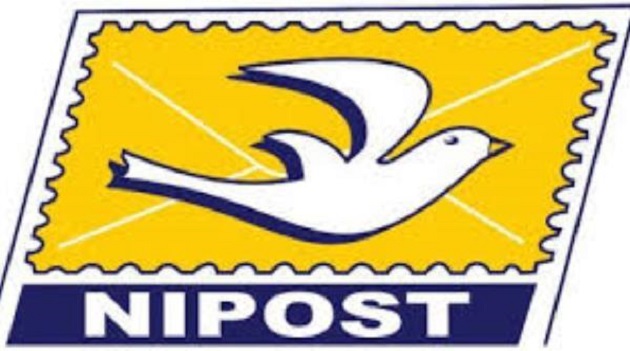News
NIPOST Clampdown on Illegal Courier, Logistics Service Operators in Kano

Nigerian Postal Service, NIPOST, has embarked on clampdown of illegal courier, express delivery, dispatch and logistics service operators in Kano State.

Dotun Shonde, the General Manager, Courier and Logistics Regulatory Department (CLRD), NIPOST, while speaking with newsmen during the clampdown operation in Kano, said the exercise became imperative to sanitize and weed out quacks from the postal service industry.
Shonde said he has received several complaints from Nigerians about sharp practices in the sector perpetrated by the illegal operators who are operating without obtaining licence and contrary to the extant laws of the postal service.
According to him, “the enforcement operations of NIPOST Act provides that before you operate a courier, express, delivery, dispatch and logistics service, you obtain a grant of license from the PostMaster General. It is stipulated in Section 43 of the NIPOST Act CAP 127 laws of the Federation of Nigeria.
“So, as you have seen, we have embarked on clampdown operation, we have people who are operating in defiant of that law, without regard to that extant law as provided for.
“The Postal, Express, Courier and Logistics industry in Nigeria has been proliferated and infiltrated with so many unlicensed/illegal Courier and Logistics Operators with reckless abandonment for ethical standard and professional conduct.
“There exist unethical sharp practices, such as price undercutting, pilfering, broaching, damages, loss and dumping of customers items, poaching and subletting of operating licenses with mountain of public complaints about Customer’s being duped or obtaining money from them under false pretenses, no traceable office address nor registered brand name.
“There abound the issue of public safety and security threats, due to carriage of illicit drugs and prohibited items. We have cases in some other parts of the country where during clampdown we found in their dispatch boxes with illicit drugs, small arms and ammunition, human parts and currency.
“All these things are prohibited in the postal service but because they are quacks and not operating within the professional ethics, so they carry anything. And of course, they have patronizers, people who patronize them because of the illicit activities.
“It is a menace to the Postal industry and portrays a negative image to the Nigerian society at large. It is against global best practices and International conventions.
“The Enforcement Team consists of officials of the Courier and Logistics Regulatory Department (CLRD) NIPOST, armed mobile police officers and men of the Force Criminal Investigation Department (FCID), and members of the press.
“So, we are here to sanitize the postal service in Kano State. The enforcement operations are about sanity to the postal market or industry. We have a lot of quacks operating in that space. No licence, no traceable office address. We have lots of complaints in the office by the Nigerian public.
“It is expedient for any interested private investors into the Postal, Express, Courier and Logistics business to follow the due process and obtain a grant of operating Licenses from the Federal Government. They are required and advised to obtain a grant of Operating License from NIPOST as stipulated by the extant laws or risk facing the full wrath of the law, and prosecution,” he stated.
The General Manager, Shonde, however, stated that it has carried out the enforcement exercise in Abia, Rivers, Edo, Lagos, Ogun, Katsina, Kwara States while hinting that they will continue the exercise in Kaduna, Abuja and later Osun state.
Meanwhile, some of the offices sealed were located around Bompai road, Shari’a Commission road and Tarauni market among others.
News
Creative Economy Ministry Secures $300M Investments Commitment

Hannatu Musawa, Minister of Arts, Culture, and the Creative Economy, has revealed that the ministry has secured over $300 million in investment commitments.

Musawa disclosed this at the Ministerial Press Briefing Session held on Friday in Abuja.
She emphasised that the government has set a goal of creating at least two million jobs within the creative industry by 2027.
According to her, “In just 18 months, we have secured over $300 million in investment commitments and established innovative funding mechanisms, including the Creative Economy Development Fund (CEDF).
“We have also initiated the development of key infrastructure projects, which are projected to generate at least two million jobs by 2027.”
The Minister further noted that President Bola Tinubu plans to unveil creative hubs across Nigeria’s six geopolitical zones in the coming months, positioning Nigeria as a global hub for creativity.
“Beyond the numbers, we have elevated Nigeria’s global cultural standing while ensuring inclusivity, empowering rural communities, women, and young people to participate meaningfully in the creative economy,”.
The Minister highlighted the significant role the creative economy will play in Nigeria’s future, particularly the music industry.
She pointed out that the government has identified five key segments within the music value chain production, marketing, sales, and others—that can generate over 500,000 new jobs by 2030, representing a transformative opportunity for Nigeria’s economy.
“A key initiative in this drive is the $200 million Creative Economy Development Fund (CEDF), managed by the African Export-Import Bank (AfreximBank).
The fund aims to provide affordable financing to creative businesses and entrepreneurs, empowering them to innovate, expand their operations, and contribute to job creation across multiple sectors such as film, music, fashion, and tourism.
The minister said in addition to funding, the ministry is working on the Abuja Creative City project, which seeks to transform the capital into a vibrant hub for the creative sector.
“This project is expected to foster economic growth, create job opportunities, and showcase Nigeria’s diverse cultural heritage.
The Minister also emphasized the importance of effective policy formulation to foster the growth of the creative sector. Currently, the Ministry is evaluating 49 sub-sectors within the creative industries, with priority given to key areas such as music, film, fashion, art, and gastronomy.
“This targeted approach is aimed at driving sustainable development and further enhancing Nigeria’s cultural and economic standing on the global stage.
“Through these initiatives, the Nigerian government is taking significant steps to harness the untapped potential of its creative industries, paving the way for a more dynamic and inclusive economy.
As part of this effort, the Ministry, in collaboration with the private sector and led by the Nigerian Economic Summit Group, is working on creating a clear policy framework not just for the creative economy but also for the art, culture, and tourism sectors.
The Nigerian government is working on a series of policy reforms National Intellectual Property Policy, which will soon be presented to the Federal Executive Council.
This policy aims to foster industry growth by securing intellectual property rights for creators. Additionally, the government is reviewing key policies such as the National Policy on Incentives for the Arts, Culture, and Creative Economy, which is designed to offer incentives and boost confidence among creative businesses.
Another important update is the review of the 2005 National Tourism Policy, intended to better support the tourism sector, which plays a crucial role in Nigeria’s cultural economy.
The government is updating the outdated 1988 National Policy on Culture and introducing a new Policy on Monetary and Credit Solutions to ensure financial support for creative businesses.
Alongside the Creative Economy Development Fund, these reforms aim to create a supportive environment for the sector to grow and position Nigeria as a major force in the global creative economy.
Musawa also announced the implementation of the Creative Economy Development Fund (CEDF), which aims to provide funding to creative businesses, drive innovation, and create jobs across multiple sectors.
Additionally, a global standard arena is under construction in Nigeria to host major music and cultural events, aligning with the country’s ambition to become Africa’s cultural hub.
News
IFC Invests $5m in Husk Nigeria to Build 108 Solar Mini Grids

Husk Power Energy Systems Nigeria Ltd (Husk Nigeria), a subsidiary of solar mini-grid operator Husk Power Systems Inc., has received a $5 million investment from The International Finance Corp. (IFC), a member of the World Bank Group, with the support of the Government of Canada.

L-r: Ethiopis Tafara, Regional Vice President for Africa, International Finance Corporation (IFC), and Olu Aruike, Country Director, Husk Power Systems, Nigeria during the signing of a $5m investment meant to expand access to reliable, renewable energy in Nigeria through IFC’s $250m DARES platform in Abidjan, Cote d’Ivoire
The financing will support the rollout of Husk’s portfolio of solar hybrid mini grids in Northern Nigeria, helping address one of the country’s most urgent development challenges: access to electricity.
It marks the first investment under the IFC Distributed Access through Renewable Energy Scale-up (DARES) Platform, a $200 million debt facility approved in November 2024 to catalyze private sector solutions across West and Central Africa.
The DARES Platform complements the World Bank-financed Nigeria DARES Project, a $750 million initiative launched in December 2023 and implemented by Nigeria’s Rural Electrification Agency.
Together, these efforts aim to provide over 17.5 million Nigerians with new or improved electricity access through decentralized renewable energy (DRE) systems.
IFC’s financing package will enable Husk to develop and operate up to 108 mini-grid sites, resulting in around 28,750 new electricity connections and delivering clean, affordable energy to around 115,000 people and businesses.
The total project cost is estimated at $25 million. IFC’s $5 million package includes a $2.5 million senior loan from its own account and a $2.5 million concessional subordinated loan from the Canada-IFC Renewable Energy Program for Africa.
The facility is structured as a revolving loan, allowing Husk to repay and redraw funds multiple times during the project’s implementation.
“The DARES Platform is an innovative approach to tackling one of Africa’s most pressing challenges—energy access. By partnering with Husk, a leading renewable energy developer globally, through the first project under the DARES Platform, we are not only addressing the immediate electricity needs of underserved communities in Nigeria but also laying the foundation for a scalable model that can be replicated across the continent,” said Ethiopis Tafara, regional vice president of Africa, IFC.
“This innovative debt facility is exactly what the minigrid industry needs to scale — blended, long-term and affordable capital,” said Manoj Sinha, Husk co-founder and CEO.
“Access to working capital is critical for sustained and rapid growth. Adding 108 new communities to our minigrid portfolio with IFC support is an important step toward our goal of deploying at least 250MW of decentralized renewable energy projects in Nigeria.” said Olu Aruike, Manager, Husk Nigeria.
News
Stakeholders Seek Strengthening of Digital Infrastructure @ IoT West Africa

Stakeholders in the emerging technologies, Data Centre and Power have stressed the need to strengthen the country’s digital infrastructure for the application of internet of Things, and artificial intelligence.

They spoke at this year’s IoT West Africa, Data Centre and Cloud Expo, co-located with Power and Water Nigeria organised by Vertex Next.
Abba Abubakar Aliyu, managing director, Rural Electrification Agency (REA) in his keynote address said that, for true sustainable development to take place in any sector, “we must create opportunities and possibilities for a strong and sustainable energy ecosystem. Within this ecosystem, digital infrastructure must leverage, or must be leveraged, as an enabler, not as an oversight”.
Speaking on the topic: “Building Digital Infrastructure for Sustainable Rural Electrification in Nigeria”, said that one of the most critical benefits of electrification and digital infrastructure nexus is the ability to enable remote monitoring of all grid installations, especially mini grids and solar home systems.
“So, in the past, the Rural Electrification Agency, which prides itself in over 600 mini grids across the country, had some challenges with respect to monitoring our systems real time.
“But with the advancement in the IoT system, IoT sector, as well as tech sector, we’re able to have sensors that report energy throughput real time. This is why the ability of digitally enabled real time tracking of generation, consumption and even technical faults provide us with the information needed to make better decisions on the go,” he said.
Dr. Aliyu who was represented at the event by Dr. Bala Tyoden, Project manager, Rural Electrification Agency of Nigeria, added: “For true sustainable development to take place in any sector, we must create opportunities and possibilities for a strong and sustainable energy ecosystem. Within this ecosystem, digital infrastructure must leverage, or must be leveraged, as an enabler, not as an oversight.
“We must understand that for digital infrastructure to thrive in rural education, policies must enable innovation. An example is the electrification act of 2003 that grants the rights to subnationals to joining the energy primary market so they can generate and distribute power now and other policy, all other policies in the pipeline to enable private sector participation in the sector.”
Dr. Aristotle Onumo, Director of Stakeholder Management and Partnerships at the National Information Technology Development Agency (NITDA) who spoke on “A Bird’s Eye View of IOT: Mapping the Future of Connected Intelligence in Africa”, said that the global IOT industry itself is growing, and it is estimated that by 2030, we are likely to have close about 29 billion connected systems across the globe, and which is an increase from 15.1 million in year 2020, think about the massive Increase.
Think about the quantum Leap and the global IoT market also is expected to support 1.6 trillion by the year 2025 that is at the end of this year, according to Mackenzie, the market itself is extended to exceed more than 1.6 trillion. And that’s the market we are in, and that is the environment we are operating.
The question is, what does this mean for Africa? What does this mean for Nigeria? Remember, Africa is about is a whole of our close about 1.4 billion people, and Nigeria, within that context, consists of about 14% of African population. Think about such a good population.
Think about what happens in Sub Saharan Africa, where the penetration of mobile penetration has increased, and that’s the Africa that we are, and it’s expected to grow up to a 88% by the year 2030, that is Africa for you.
And with the mobile penetration, with the kind of mobile infrastructure that is existing even Africa today, it provides a fertile ground for IOT. It provides a fertile ground for us to leap frog opportunity, not that we want to replicate the past, but to reinvent what the future looks like, and that’s what is important for us to consider, to think about, to imagine, to reason around.
Consider what happens in agriculture, which almost accounts 60% of employment in Africa. Think about the transformation I can take with smart technologies in agriculture, where IoT sensors can now measure oil motions, optimize irrigation and track livestock in a time. These are realities. They are not imaginary.
According to him “Africa currently accounts less, much more, less than any other continent in the global narrative. I’m not just talking about statistics. I’m not just talking about words or numbers to discourage us, but it is a call for action. What then do we think will be the economic impact of IoT in Africa?
According to World Bank reports, digital technologies alone could add plus about $300 billion in Africa GDP even by the end of this year. And IoT is at the heart of digital transformation. Mackenzie also has estimated that IoT has the potential of economic impact across the global market, exceeding 1.6 trillion naira and trillion dollars by the year 2025 with significant value in agriculture, logistics, energy, public health, all key priority in Africa. Imagine using predictive analytics from IoT sensors to reduce the cost of harvest loss.
Think about it in African countries where the harvest loss, especially in agriculture, is up close to 30 to 50% think about how you could use IoT for diagnosis to combat diseases that claim 1000s of lives every year. They are not just tech innovation. They are life saving devices.
He identified some challenges in the quest to reap the benefits of IOT such as connectivity gaps, especially in rural areas. “You agree with me that even in some rural areas, even in some areas, you see how 2G 3G some are struggling with 4G and a few they had where the 5G is actually working at this moment, when you think about the energy, it is a critical issue, not only In Nigeria, but across Africa, these connected devices need to be powered through networks.
So power is an essential issue. Is a challenge that we must overcome, cyber security and other governance. If we’re going to be connected across internet, connected across machines, machine talking to machines, then the issue of cyber security becomes an issue. Governance becomes very imperative.
Government comes in, has a great role to play in providing policies and guidelines that will help us to operate responsibly now help us to operate within the internet space in a manner that will serve and create value for the public, and perhaps most importantly, the skill gap. Studies have shown that, apparently, skill gap, not only in Africa, but across the globe.

 News2 days ago
News2 days agoStakeholders Seek Strengthening of Digital Infrastructure @ IoT West Africa

 Telecom2 days ago
Telecom2 days agoAirtel Introduces Full Shopping Experience Within My Airtel App

 General News2 days ago
General News2 days agoLagos Slush’D 2025 To Promote Creativity among Start-ups

 General News1 day ago
General News1 day agoNITDA Advocates Strategic Partnership in Research to Unlock Nigeria’s Digital Potential

 E-Business2 days ago
E-Business2 days agoQ1 2025 .ng Domain Name Statistics Reflect Nigeria’s Advancing Digital Landscape

 General News2 days ago
General News2 days agoJumia Expands Delivery Service to Nigeria

 Telecom1 day ago
Telecom1 day agoGSMA Urges Governments to Prioritise Affordable Spectrum Costs to Support Global Digital Growth

 Telecom1 day ago
Telecom1 day agoSophos Launches MSP Elevate Program to Boost MSP Growth and Profitability


















